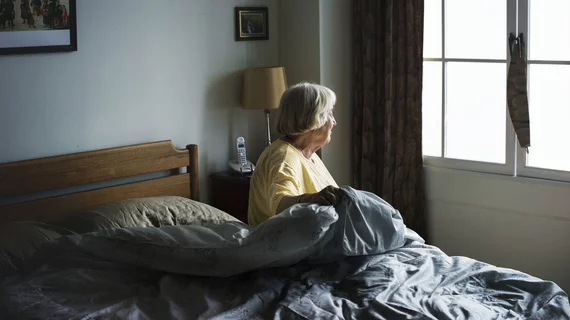Healthcare groups urge Congress to extend hospital-at-home waivers
Dozens of healthcare groups have banded together to ask Congress to extend waivers for hospital care at home that were granted during the COVID-19 pandemic.
More than 100 healthcare groups in total signed a letter to lawmakers to urge passage of the Hospital Inpatient Services Modernization Act, which would extend the current acute hospital care at home waiver flexibilities for two years from the end of the COVID-19 Public Health Emergency (PHE). More than 200 hospitals in 34 states are approved by the Centers for Medicare and Medicaid Services (CMS) Acute Hospital Care at Home (AHCH) waiver program.
“This legislation will maintain access to these services and provide necessary stability and predictability for patients, caregivers and physicians,” the letter reads.
The program has enabled hospitals and health systems to provide safe, high quality care in the comfort of the patient’s home. The care provided to Medicare patients has been associated with significant reductions in 30-day readmissions, post-discharge emergency department visits and skilled nursing facility utilization. Patients who receive hospital care at home also report higher satisfaction, better sleep and mobility.
The care provided under these waivers is tied to the duration of the PHE, which is why healthcare groups are asking for a two-year extension. The bill will give providers greater certainty and predictability for this care option.
Among the healthcare groups that signed onto the letter are the American Medical Association (AMA), the American Academy of Home Care Medicine, Atrium Health, Kaiser Permanente, Mayo Clinic and many more.
“The benefits of advanced care at home will serve patients well beyond the pandemic,” Stephen Parodi, MD, executive vice president of The Permanente Federation at Kaiser Permanente, said in a statement from AAHCM. “By extending these flexibilities, Congress will create a predictable pathway for medical professionals to fully realize advances in the care delivery system that enable patients to be treated with safe, equitable, person-centered care in the comfort of their own homes.”
Kaiser Permanente has safely provided hospital-level care at home to more than 1,100 patients.
“The Hospital Inpatient Services Act will allow patients to have the continued option to receive acute level services in their home instead of a hospital.” Since the beginning of its program in 2020, Mayo Clinic has treated more than 1,700 patients in its programs in Arizona, Florida and Wisconsin,” Michael Maniaci, MD, physician leader for Mayo Clinic’s program, said in the same AAHCM statement.

